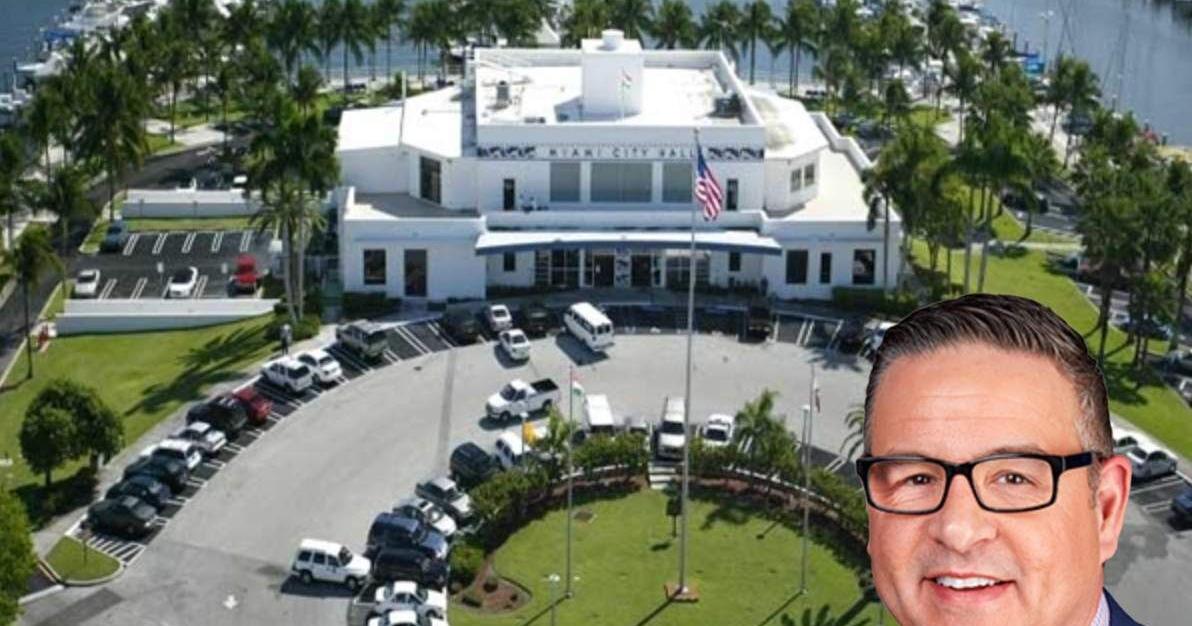City manager reorgs, hires new trio to help Miami carry out 5-year vision plans | Miami
Miami City Manager Art Noriega has added three new staff members to his leadership team in an effort to help carry out city leaders’ policies and projects for the next five years.
The new crew members have experience in budgeting and financing; technology information and master planning; and city planning and impact studies — all areas in which the city is working to improve services to residents, business owners and local organizations.
Noriega appointed Larry Springs as the new assistant city manager and chief financial officer; Lakisha Hull as the new planning director; and Gee Chow as the new director of information technology and chief innovation officer.
The new team was assembled as the city is preparing its budget for the next fiscal year. Team members, for one, will help the city carry out its new ordinance that forces developers to build more parking in the Downtown and Brickell areas.
Springs, a certified public accountant and former city manager for North Miami, will take over Miami’s financial duties, such as budgeting, accounting, capital financing and bond issuance.
Springs has more than 19 years of experience in the public sector, 15 of those as an assistant director in general government finances. He also was a corporate director of Productivity and Decision Support for Jackson Health Systems, as well as former chief financial officer.
Springs earned his bachelor’s degree in accounting from Tulane University and is a licensed realtor in Florida.
Chow has vast experience in the areas of information technology management in local government, including managing and developing multiple teams of enterprise-wide IT service for public safety for several Florida counties like Miami-Dade, St. Lucie and Osceola in the St. Cloud area, as well as City of Coral Gables.
His duties with Miami also include strategic planning in developing master plans for technology initiatives and capital improvement projects, and overseeing large-scale budgets for production systems.
He has an MBA and a master’s degree in finance from Florida International University, and a bachelor’s degree in computer science from the University of Florida.
Hull previously was development services division manager for the City of Charlotte, N.C., where she processed land development projects and right-of-way management permits.
Hull also oversaw work programs, such as rezoning petitions, traffic impact studies, encroachments, abandonments, lease agreements and special events permits.
Before her tenure in North Carolina, Hull was the city planner in Los Angeles.
Hull has a dual master’s degree in architecture and city and regional planning from the University of Pennsylvania, School Design, and a Bachelor’s of Science in architecture from the University of Michigan’s Taubman College of Architecture and Urban Planning.
She also is a graduate from the Design and Architecture Senior High School (DASH), located in the Miami Design District.
Noriega said his new leadership team is capable of getting the job done for Miami.
“I am confident that these professionals, based on their experience and qualifications, possess the skills necessary to successfully carry out our vision for the future,” he said.
Noriega’s new leadership team will assist the City of Miami in handling new policies endorsed by city commissioners.
One of them is a new ordinance that would essentially force developers to build more parking in Downtown Miami and Brickell. Commissioners approved the legislation in March 2022, but it is not known if the law has gone into effect.
Critics suggested the ordinance heads in the opposite direction of current planning trends and even the city’s own groundbreaking zoning code.
According to the ordinance, developers will be required to build the full amount of parking required by zoning, unless they can get a commission vote to allow a reduction for their specific project. Parking reduction waivers by city planners for projects near transit stops will no longer be permitted.
Commissioner Manolo Reyes, who sponsored the ordinance, told reporters after the vote that Miami is not a pedestrian and bicycle city.
“We don’t have a mass transit system, period,” he said.
Commissioner Joe Carollo, who also supported the ordinance, called developers “greedy” for wanting to build less parking.
Noriega’s new leadership team will assist Miami in its budget process for 2022-2023, with the city’s general fund estimated at $877,301 million for next year.
The city closed its books on June 10, 2022 for the current fiscal year with a budget surplus of $30,422 in the general fund.
City Commissioners now will decide whether to hold the line on the millage rate for property taxes or reduce the rate during two budget hearings in September.
The city is focusing on completing road repair and sidewalk improvement projects, hiring more police officers, building affordable housing, and upgrading the transportation system.



